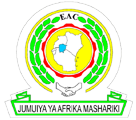Complaint
- Complaint number
- NTB-001-069
- NTB Type
- 7.7. Complex variety of documentation required
- Complaint
-
A number of procedural requirements are currently impeding the exports of Mauritian products to Egypt. To that effect, the concerned authorities in Mauritius have made enquiries with a registered trader in Egypt and it has been brought to its attention that for an exporter to start trading with an Egyptian importer, the following documents, duly certified by the Chamber of Commerce and approved by the Embassy of the Arab Republic of Egypt, have to be submitted as per Ministerial Decree 43/2016:
i. A registration form by the legal representative of the factory or authorised person;
ii. A certificate of legal status of the factory and the issued license of the factory;
iii. A list of products of the factory and their brand;
iv. The brand of the product and the Trademark produced according to a license from the owner;
v. A certificate that the factory has a Quality Control System from a recognised body of The International Laboratory Accreditation Cooperation (ILAC) or the International Accreditation Forum (IAF) or from an Egyptian or Foreign Government body approved by the Minister of Foreign Trade.
The authorities in Mauritius consider that these procedural requirements constitute a Non-Tariff Barrier and in that regard contravene Article 49 of the COMESA Treaty.
We would appreciate that the authorities concerned in Egypt review these procedures in order to facilitate trade in line with the spirit of the COMESA Treaty.
- Status note
- Egypt has approved the accreditation of Mauritius Standards Bureau (MSB) as a government entity to issue quality management system certificates, as required for registration by Ministerial Decree No. 43 of 2016. The NTB can now be marked as 'Resolved'
- Progress update note
-
1. On 25th October 2022, Egypt Focal Point submitted the comments below : Ministerial Decree
No. 43 of 2016
Concerning the rules governing the registration of qualified factories to export their products to the Arab Republic of Egypt.The decree was issued with the aim of regulating the Egyptian market and protecting public health, in view of the recent spread of imported, finished products intended for sale to consumers directly in the Egyptian markets. These products are of unknown origin and do not conform to the technical specifications and requirements, which affect the general health of the consumer, as well as negatively impact the national industry, which is unable to compete with these products.
Text of the Decree
a. Decree No. 43 for the year 2016 issued that the registry (register) of companies and factories that own trademarks eligible to export the mentioned products in the decree to Egypt must be established at the General Organization for Export and Import Control (GOEIC). According to the decree, products imported for commercial purposes shall not be released unless they are produced by registered factories or imported from companies owning the trademarks or their registered distribution centers.
b. Goods and products to which the decree applies:
Decree No. 43 for the year 2016 specified number of goods that require the registration of their factories that export to Egypt in the records of the General Organization for Export and Import Control. Among these products are: “imported fruits, dairy products, sugar products, oils, carpets and floor coverings, clothing and furnishings, Home lighting appliances, home and office furniture, children’s toys, household appliances, chocolate, paper, and iron and steel bars.”
c. The decree does not include suspending or preventing the import of these products, rather it sets procedures to regulate their import through the registration of producers and trademark owners who are qualified to export their products to Egypt in the established record for this purpose in the General Organization for Export and Import Control. Once registered, the imported cargo will be released, and there is no need to register each cargo. Hence, the decree is for regulatory purposes to ensure the quality of imported products.
d. This measure was taken with the aim of protecting the health and safety of Egyptian consumers from goods of unknown origin. In addition, the World Trade Organization has been notified of this decree, and it is in accordance with the provisions of the organization, in particular, the Agreement on Technical Barriers to Trade and Article (20) of the provisions of the GATT 1994.
e. The decree is applied on all countries of the world on a nondiscriminatory basis, and in compliance with a basic principle in the GATT agreement, which is most favored nation treatment. The decree is also in compliance with the principle of national treatment, which requires non-discrimination between procedures for national or imported products.
f. In order to facilitate and simplify the procedures, any country can submit a certificate provided by any Egyptian or foreign governmental entity proving that factory and company owning the trademark implements a quality control system. This certificate is considered an alternative to the quality certificate approved by ILAC or IAF, in implementation of the requirements of Decree No. 43 for the year 2016, which regulates the registration of factories eligible to export their products to Egypt, after the approval of the Minister of Foreign Trade.
g. Amendments have been made to this decree to facilitate the procedures to the stakeholders and avoid the obstacles they face in terms of time duration for registration or the need to establish a mechanism for submitting grievances and complaints, as is specified below;
Ministerial Decree No. 195 for the year 2022 amending Decree No. 43
Ministerial Decree No. 195 for the year 2022 was issued in March 2022, regarding the amendment of some provisions of Decree No. 43 for the year 2016, with the aim of amending the rules governing the registration of factories eligible to export their products to Egypt.
h. The amendment contributes to speeding up and simplifying the procedures for registering companies and factories eligible to export their products to Egypt, facilitating the importation and exportation of products, and setting specific time periods for registration.The amendment issued the cancelation of the third paragraph of Article (1) in Decree No. 43, stating the cancelation of registration by the Minister of Trade. The registration occurs as soon as the necessary documents are submitted. The relevant applicant shall receive proof of registration within a period not exceeding 15 days. In case of suspicion in the validity of the submitted documents, registration in the registry will not take place until these documents have been verified.
i. It is worth noting that registration is only done once, and companies wishing to export to Egypt must renew, only the documents with an expiry date, within a period not exceeding 30 days from the date of expiry.
j. The decree also added new paragraph to Article (2) of Decree No. 43 stating that “it is permissible to submit documents for registration through the embassies and consulates of the governments of the relevant countries”. Additionally, the decree added two new articles numbered Article 2 (bis) and Article 2 (bis1). Article 2 (bis1) states that “a committee shall be established by a Decree of the Minister of Trade, to follow grievances against non-registration or cancellation of registration. The grievance request shall be submitted to the Trade Agreements and Foreign Trade Sector to be presented to the Grievances Committee. The grievance shall be decided upon within a period not exceeding 15 days from the date of its submission, and the grievant shall be informed of the reasons for non-registration or cancelling of registration and the corrective actions that must be taken to re-register”.
k. Article 2 (bis) states that “Striking off /cancelling of registration shall take place through a decision by the head of GOEIC in cases of missing any of the registration conditions, and the decision will state the reasons for cancellation of the registration. A grievance of the cancellation decision could be submitted within 60 days of informing the relevant factory /company.In this context, Egypt affirms commitment to the rules and legislation regulating international trade, within the framework of its membership in the World Trade Organization, as well as our commitment to our membership in all the regional agreements, especially the COMESA countries, as one of the most important trading partners of Egypt.
2. The Secretariat facilitated a bilateral meeting between Mauritius and Egypt on 17 Nov 2022 to discuss resolution of this NTB in which Egypt informed the meeting that the decree had been amended and the procedures were simplified and therefore it was agreed that Mauritius advise their private sector to try and register again and report back should they face any challenges .
3. This matter was again discussed during the Workshop on Capacity building for Focal Points and NMC on 3- 6 April 2023 at which it was recommended that Mauritius provides feedback in the online system on the experience of their private sector when trying to register under the improved electronic registration procedures.
3. During the 3rd meeting of the NTBs Forum: i. Egypt informed the meeting that the new decree simplifies the documentation and registration procedures and provided the website that could assist in that regard and therefore the NTB should be resolved;
i. Egypt informed the meeting that the new decree simplifies the documentation and registration procedures and provided the website that could assist in that regard and therefore the NTB should be resolved;
ii. Mauritius requested more time to complete internal consultations with their exporters and provide feedback in the online system;
iii. In case a bilateral meeting between the two countries is necessary , Mauritius will inform Egypt also indicating the agenda for the meeting.
4.On 21st February 2024 , Mauritius submitted the following feedback from their consultative process with stakeholders:
The main outcome of the consultations with the private sector is that the NTB has deterred exports to Egypt. The exporters also highlighted that:
a) The process for registration of each shipment is cumbersome and time-consuming, whereby different approvals are required from different agencies;
b) The lengthy process will increase the lead time, thereby negatively impacting the competitiveness of our exports;
c) The requirement to provide a Certificate of Inspection/Compliance (from 3rd Party) or ISO 9001 certificate (for manufacturer) to Customs appears to still be maintained by the Egyptian Authorities;
d) They are already exporting to international brands based in Southern African, European and North American markets without the need to provide a Certificate of Inspection/Compliance (from 3rd Party) or ISO 9001 certificate (for manufacturer) to Customs; and
e) In addition, several of the key customers of Mauritian companies trust the internal Quality Management System of the company and have classified these companies as a ‘Self-approve’ manufacturer
5. During the NTBs workshop 17th - 19th April 2024 in Nairobi, NFPs requested for a bilateral meeting as Mauritius exporters continue to be affected by the requirements and the Mauritius NFP has updated their concern on the system.
6. On 22 August 2024, Mauritius requested for a bilateral meeting with Egypt and the bilateral meeting was eventually held on 27 August 2024. The meeting agreed on the following:
a. Egypt to review some requirements to take into consideration Mauritius MSMEs exporting to her market particularly those in the apparel sector.
b. Egypt to share the revised decree which is said to have more simplified requirements
c. In the medium-long term, Egypt to review the decree and introduce a Risk Management System (monitoring and surveillance mechanism) that will replace the decree
d. Egypt to share a Technical File with all the reviewed requirements by Tuesday, 3 September 2024.
e. On 5 September 2024, Egypt had not shared the Technical File and the Secretariat sent a reminder as the deadline for sharing the Technical File had already passed.
7. After exchanging documents towards the accreditation of the Mauritian Authority (Mauritius Standards Bureau), the two Member States convened a bilateral meeting on the 28 May 2025 and the meeting was informed that Egypt has accredited the Mauritius Standards Bureau. During the meeting, Mauritius requested some information on the processes needed for the Bureau of Standards to issue its first certificate.
8. During the 10th Meeting of the TTFSC held on 2 - 4 July 2025, Egypt updated the meeting that the relevant documents were shared with Mauritius towards the resolution of the NTB.
i. The Secretariat was requested to continue facilitating bilateral meetings between the two Member States towards the resolution of the outstanding NTB.
ii. Mauritius informed the meeting that they are still waiting for Egypt to provide clarity on certain issues before the NTB can be considered resolved. - Policy or regulatory NTB
- No
- Location
- Egypt: Chamber of Commerce Egyptian Embassy Ministry of Foreign Trade (Government institution)
- Reporting Country or Region
- Mauritius
- Country specific trade issue
- No
- Date of incident
- 2016-09-15
- Status
- Resolved
- Date of resolution
- 2025-10-08
- Product Description
-
- Total value
- 0
- Date reported
- 2022-07-01 11:57
- Modified
- 2025-11-20 12:49
Messages
No messages



 English
English Français
Français
